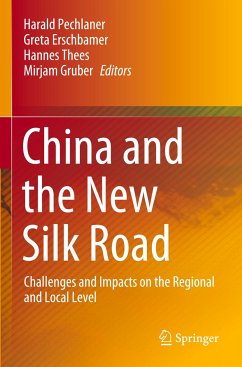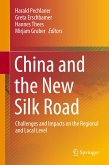This book studies the Chinese "Belt and Road Initiative" (BRI), also called "New Silk Road", and focuses on its regional and local effects. Written by experts from various fields, it presents a range of case studies on the geopolitical, socio-economic, ecological and cultural implications of the BRI for European regions and their stakeholders.
The book is divided into four parts, the first of which discusses the history of and China's motivations for the BRI. The second part explores the global phenomenon from a number of regional standpoints. In turn, the third part presents studies on the political, socio-economic, cultural and ecological implications of the New Silk Road project. The final part highlights the tourism prospects in connection with the Silk Road project, as tourism has established itself as an important economic sector in many regions along the historic Silk Road. This book will appeal to scholars of economics, international relations and tourism, decision-makers, managers, chambers of commerce and entrepreneurs with special interests in establishing collaboration with the Chinese market.
The book is divided into four parts, the first of which discusses the history of and China's motivations for the BRI. The second part explores the global phenomenon from a number of regional standpoints. In turn, the third part presents studies on the political, socio-economic, cultural and ecological implications of the New Silk Road project. The final part highlights the tourism prospects in connection with the Silk Road project, as tourism has established itself as an important economic sector in many regions along the historic Silk Road. This book will appeal to scholars of economics, international relations and tourism, decision-makers, managers, chambers of commerce and entrepreneurs with special interests in establishing collaboration with the Chinese market.








